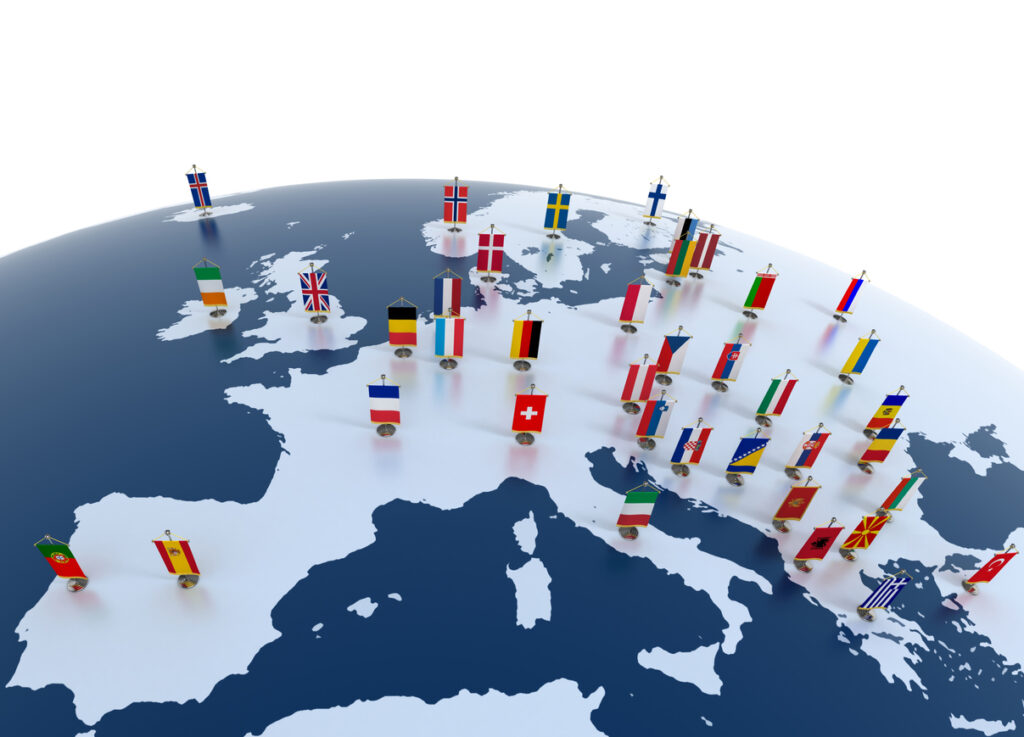Stress is rife in the UK – and it’s affecting our health, engagement and performance at work. Are there lessons to be learned from other countries on better managing this epidemic?
Every year in the UK, 70 million work days are lost due to mental ill health such as anxiety and depression, making it the leading cause of sickness absence. These mental health conditions can often be stress-related, with work being one of the most common causes of stress.
What lessons can companies in the UK learn from European countries when it comes to dealing with stress, and what tactics can we borrow from them to improve the situation here? The following are three strategies that can be implemented by organisations’ leaders and HR teams to help reduce workplace stress.
The right to disconnect in France
The 2018 Labour Force Survey (LFS) shows that 44% of workers in the UK claim that the root cause of workplace-related stress is the workload itself. The pressure of dealing with urgent emails after official working hours will sound all too familiar to most of us and it’s a big factor that adds to the workload.
In 2017, France introduced a law to enforce companies to give staff a break from office emails. Companies with more than 50 employees were told to block out set hours when staff should be able to enjoy their private time. Benoit Hamon, the French legislator who pushed for this law, explained the reasoning behind it as being necessary for workers who “leave the office, but do not leave their work. They remain attached by a kind of electronic leash—like a dog.”
Mocked by many at its introduction, this law has since been enforced in practice. For example, the French arm of Rentokil Initial was ruled to have broken this law and was ordered to pay an employee €60,000 (£53,000).
While employees may not have a statute to back them up here in the UK, what companies can learn from this is to enforce rules that respect employees’ ‘offline time’ to avoid burnout and overworking.
Work-life balance reps in Denmark and Norway
The matter of work-life balance or integration is often a root issue when it comes to stress. The Mental Health Foundation’s claims that “feeling unhappy about the amount of time you spend at work and neglecting other aspects of life because of work may increase your vulnerability to stress.”
Nordic countries have long been celebrated for being at the forefront of ensuring employee wellbeing. While a lot of it is tied to laws and regulations, there is one wellbeing concept that UK companies could easily borrow: the existence of work-life balance representatives.
In Denmark and Norway, a company’s workforce elects representatives to play a role in promoting and monitoring everything from safety to work-life balance, healthy lifestyle habits, improved nutrition and exercise.
This is a workplace culture shift, as it empowers the workforce itself to inform decision makers in the company on what is best for their wellbeing. The idea is for companies to actually listen to the team’s recommendations and come up with collaborative solutions to reduce stress and avoid burnout.
The ‘fika’ mentality in Sweden
You cannot talk about employee wellbeing without mentioning Sweden, which is known for being the European country with the least stressed workers. One of the country’s workplace traditions, which has gained popularity over recent years is its so-called ‘fika’ break, which is mandatory in Swedish companies.
Fika allows employees to take a breather from their work, go for a walk or have a drink or snacks, between two to five times in a typical working day. While we may not have this luxury in the UK, this is a lesson for companies who want a more relaxed and productive workforce.
It’s important to note that fika is not just an office perk you can introduce to your team – it’s a certain mentality and social ritual which doesn’t even need to involve refreshments. It’s about pausing your day and taking a step back from work together with your colleagues.
It’s been reported that Swedish workers find that this breaks down barriers in the office, as the hierarchy disappears during the fika, which allows people to reflect on how they are feeling or acting in the office on any given day. In turn, this simple daily habit has a positive impact on workers’ wellbeing and lowers levels of stress.
So while we wait for our government to recognise that the current working culture is burnout-inducing and bad for the economy, we can take matters into our own hands by paying attention to what works in other countries and apply them here in the UK to help make people happier at work.











